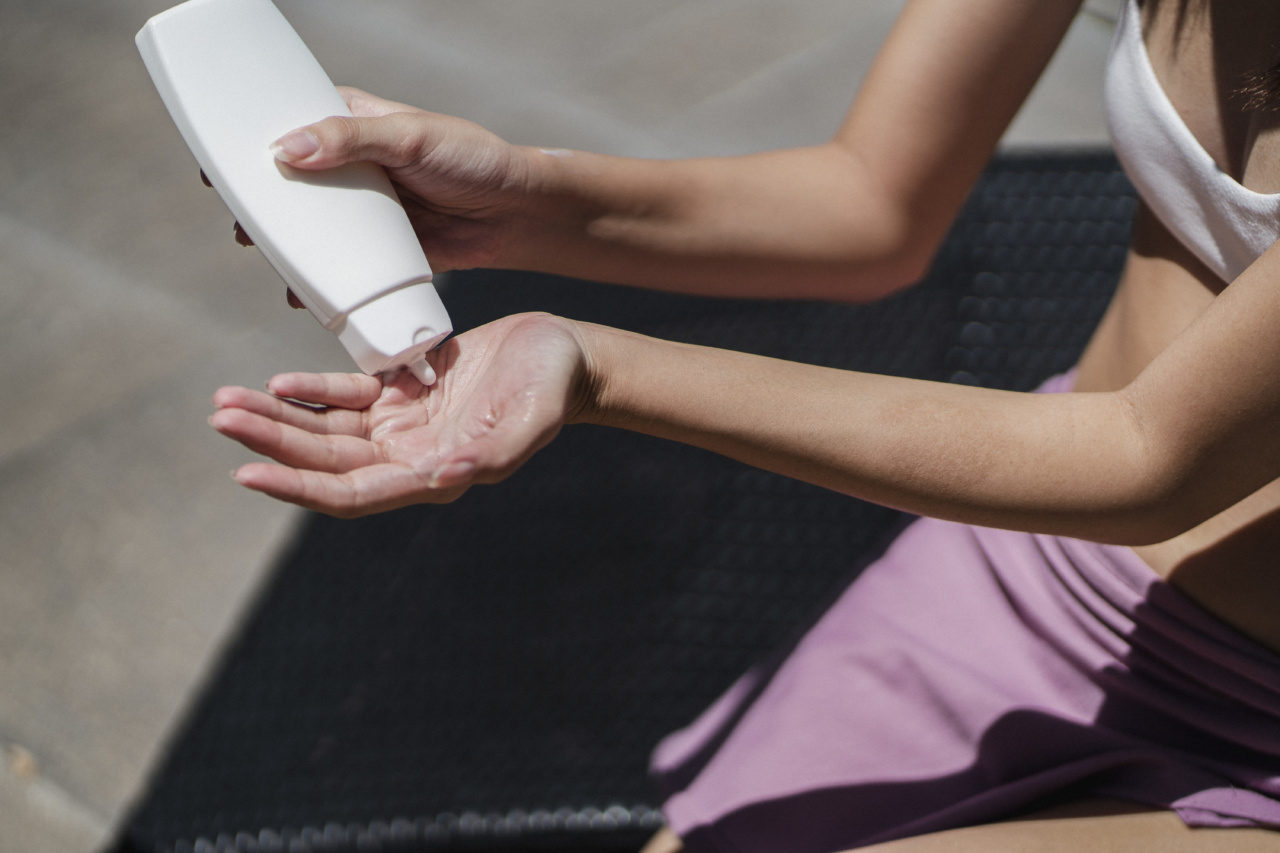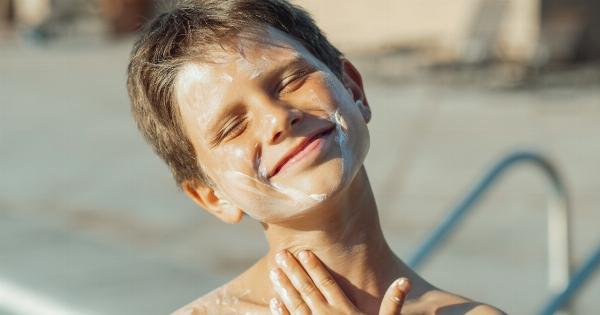When we think about protecting our skin from the harmful effects of UV rays, we often forget to consider our eyes. Just like our skin, our eyes are also susceptible to damage caused by the sun’s ultraviolet (UV) rays.
UV rays can cause sunburn, premature aging, and even increase the risk of developing serious eye conditions. That’s why it’s essential to protect our eyes from UV rays with sunscreen.
The importance of UV protection for your eyes
UV radiation can harm various parts of our eyes, including the cornea, lens, and retina. Prolonged exposure to UV rays without protection can lead to a number of eye problems and vision impairments:.
1. Photokeratitis: Also known as snow blindness, photokeratitis occurs when the eyes are exposed to intense UV rays, typically from snow or water surfaces.
It can lead to painful symptoms such as redness, tearing, sensitivity to light, and even temporary vision loss.
2. Pterygium: UV exposure can cause the growth of a pink, fleshy tissue on the white part of the eye. This condition, known as pterygium, can be irritating, affect vision, and may require surgical removal in severe cases.
3. Cataracts: Cataracts are a common age-related eye condition where the lens of the eye becomes cloudy. UV radiation has been linked to the development of cataracts, leading to blurred vision and eventual surgical intervention.
4. Macular degeneration: UV rays can contribute to the development or progression of macular degeneration, a leading cause of vision loss among older individuals.
This condition affects the macula, the part of the retina responsible for central vision.
How sunscreen protects your eyes from UV rays
You may be familiar with using sunscreen to protect your skin, but did you know that you can apply sunscreen to your eyelids and around your eyes for added protection? Here’s how sunscreen helps safeguard your eyes from harmful UV rays:.
1. Blocks UV rays: Just like sunscreen protects your skin, it can also create a barrier between your eyes and the damaging UV rays.
Look for sunscreens that are specifically formulated for the delicate skin around the eyes or consult with your eye care professional for recommendations.
2. Reduces glare: Sunscreens with a matte finish or those containing ingredients like zinc oxide can help minimize the glare caused by sunlight, preventing eye strain and discomfort.
3. Soothes and hydrates: Using a sunscreen with moisturizing properties can help keep your eyelids and the skin around your eyes hydrated, reducing dryness and irritation.
Choosing the right sunscreen for your eyes
When it comes to selecting a sunscreen for your eyes, there are a few factors to keep in mind:.
1. Broad-spectrum protection: Ensure that the sunscreen you choose provides broad-spectrum protection, meaning it shields against both UVA and UVB rays. Look for a Sun Protection Factor (SPF) of 30 or higher.
2. Suitable for sensitive skin: The skin around the eyes is delicate, and some sunscreens may cause irritation. Opt for hypoallergenic or mineral-based sunscreens that are less likely to cause adverse reactions.
3. Water-resistant: If you plan to spend time near water or engage in activities that may cause sweating, opt for a water-resistant sunscreen to ensure continued protection.
Additional tips for eye protection
While using sunscreen is crucial, there are other measures you can take to safeguard your eyes from UV rays:.
1. Wear sunglasses: Invest in a pair of high-quality sunglasses that offer 100% UVA and UVB protection. Look for sunglasses labeled as UV400 or those that mention providing 100% protection against UV rays.
2. Use a wide-brimmed hat: Pairing your sunglasses with a wide-brimmed hat can further shield your eyes from direct sunlight, reducing the amount of UV rays reaching your eyes.
3. Seek shade: When the sun is at its strongest, usually between 10 am and 4 pm, try to seek shade to minimize your exposure to UV rays.
4. Regular eye exams: Schedule regular eye exams with your eye care professional to monitor your eye health and detect any potential issues early on.
Conclusion
Protecting your eyes from UV rays is just as important as protecting your skin. UV radiation can cause a range of eye problems, from temporary discomfort to permanent vision loss.
Applying sunscreen to your eyelids and the skin around your eyes, along with wearing UV-protective sunglasses, can significantly reduce the risk of such issues. By taking these simple steps and incorporating them into your regular routine, you can ensure the long-term health and well-being of your eyes.





























